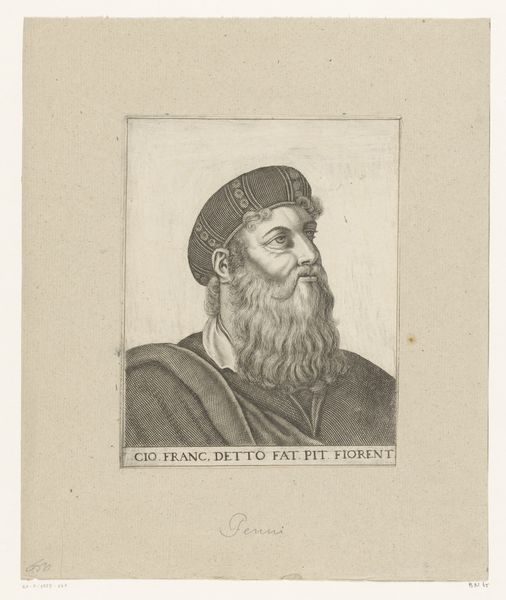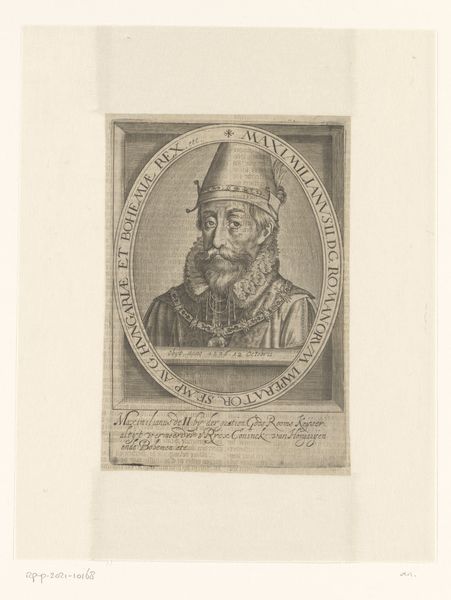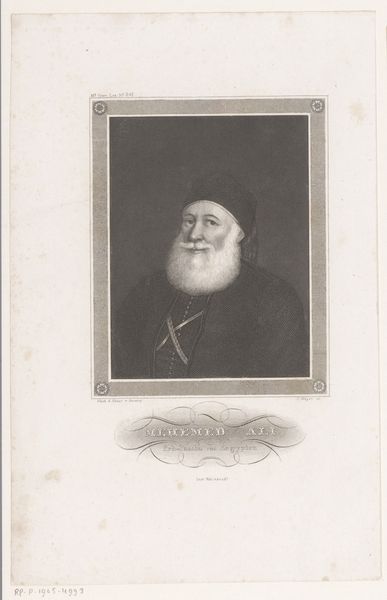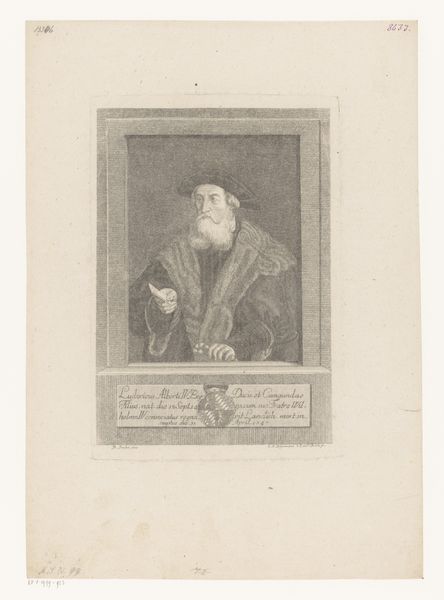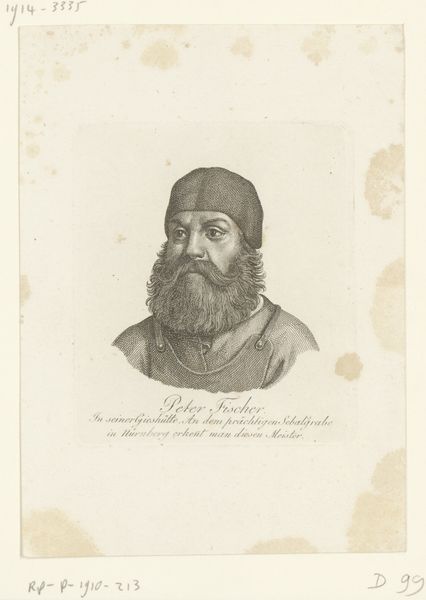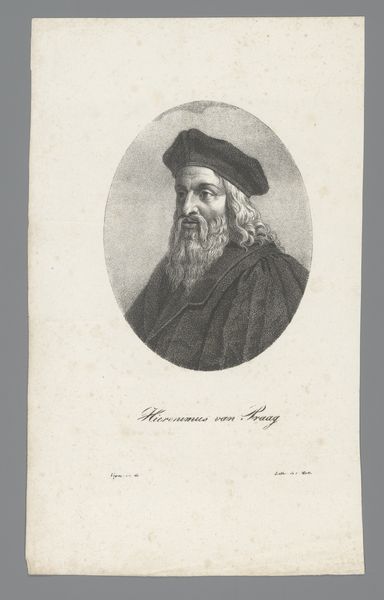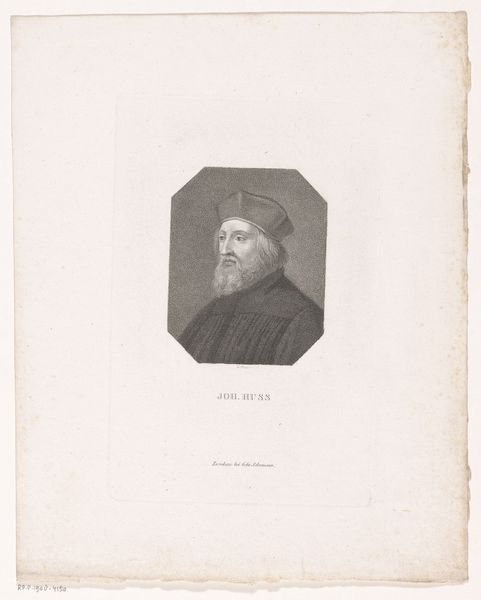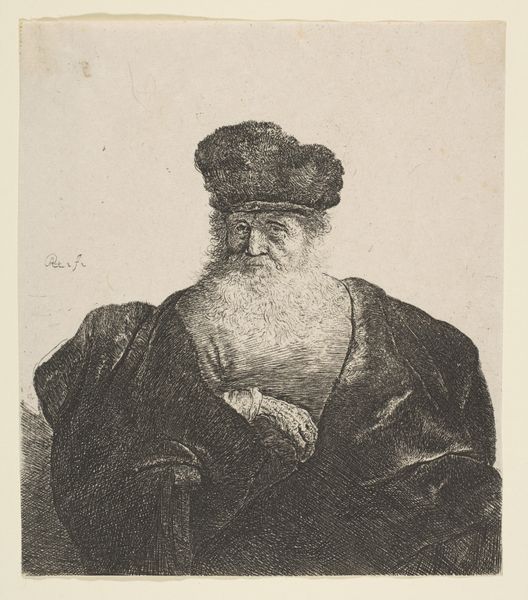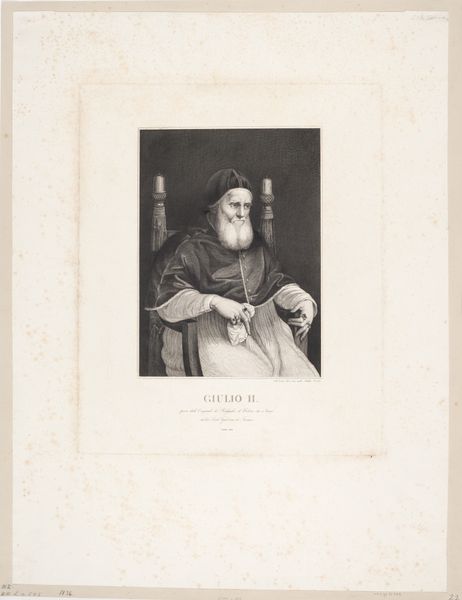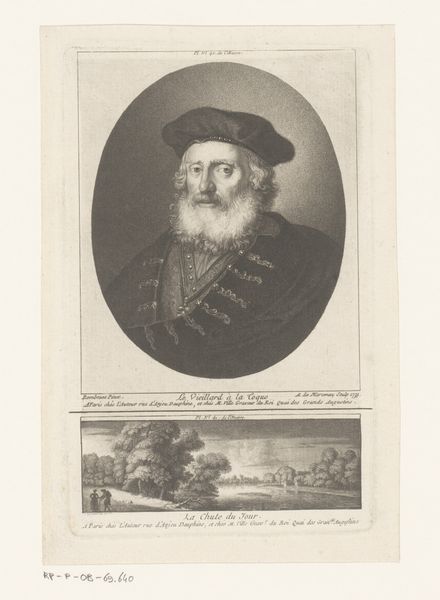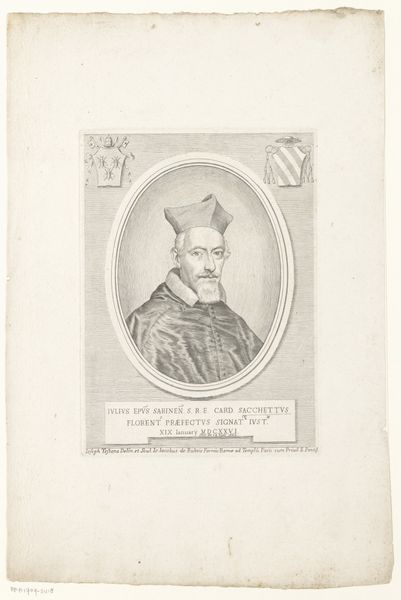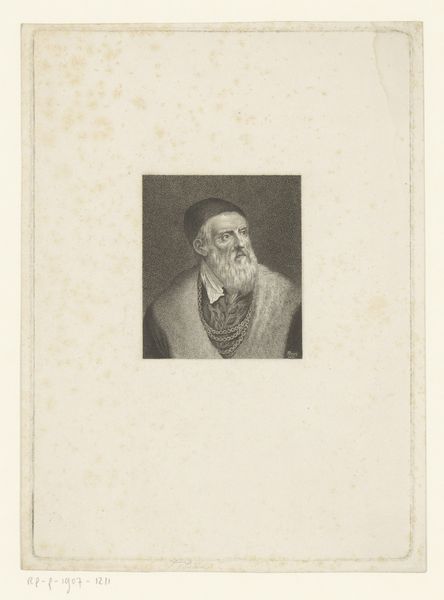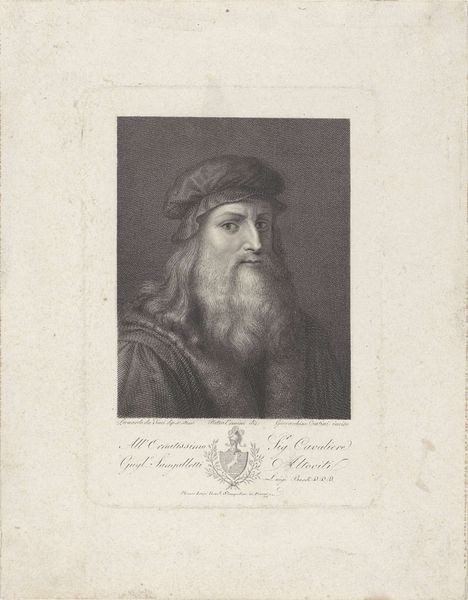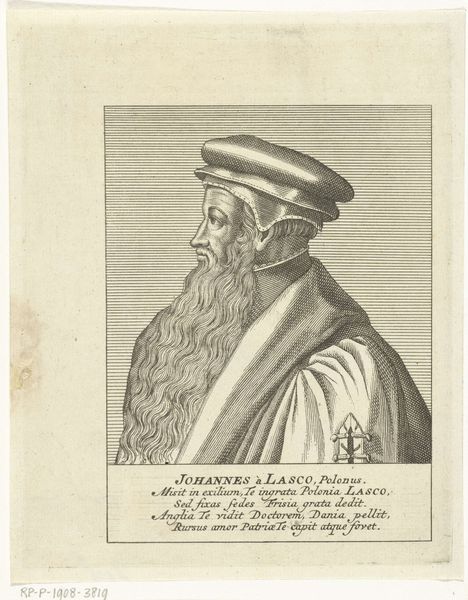
paper, engraving
#
portrait
#
old engraving style
#
paper
#
history-painting
#
italian-renaissance
#
engraving
Dimensions: height 206 mm, width 145 mm
Copyright: Rijks Museum: Open Domain
This is Cristoforo Silvestrini’s portrait of Doge Girolamo Priuli, made in the late 18th or early 19th century. It's an engraving, which is an indirect printmaking process. The artist would have used a tool called a burin to incise lines into a metal plate, likely copper. Ink is then forced into these lines, and the surface is wiped clean. When paper is pressed against the plate, the ink transfers, creating the image you see here. Engraving was a highly skilled craft, demanding precision and control. The density and direction of the lines create shading and texture, bringing Priuli's likeness to life. Look closely at the details - the delicate lines defining his face, the intricate patterns of his robes. These were achieved through meticulous, painstaking work. While prints like this were often reproduced, each one still bears the mark of the engraver's hand. The process connects this image to a wider history of craft and labor. Ultimately, the artist's skill transforms a common material into a compelling portrait, reminding us that even in reproductive media, the hand of the maker matters.
Comments
No comments
Be the first to comment and join the conversation on the ultimate creative platform.
